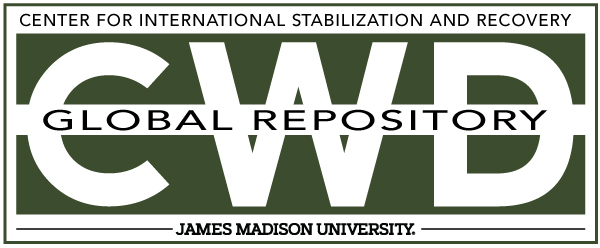Document Type
Article
Creative Commons License

This work is licensed under a Creative Commons Attribution-Noncommercial-No Derivative Works 4.0 License.
Publication Date
8-2008
Keywords
Centers and Organizations, National Ownership, International Development, Nnited Nations, UN, United Nations Mine Action Service, UNMAS, Landmines, Afghanistan, Humanitarian Mine Action, HMA, MACA, GICHD, Ted Paterson, Faiz Paktian, William Fryer
Abstract
The main purposes of this report are to (i) advise CIDA/ATF on what it should expect from the UN Mine Action Service (UNMAS) in terms of reporting on development results, and (ii) assess feasible timelines and approaches for the transfer of UN responsibilities for mine action in Afghanistan to national organs, capable of addressing the country's future problems stemming from explosives contamination. The specific objectives of the assessment relate to: 1. Donor coordination, particularly as this relates to the UNMAS/MACA exit strategy and the emergence of national ownership; 2. Nationalisation, particularly with respect to the transition to full national ownership; 3. Mainstreaming components of mine action in support of reconstruction and development; 4. MACA capacity for monitoring and evaluation of development results, including gender. The report is organised as follows: Chapter 1 provides a background on Afghanistan, the nature and extent of its explosives contamination problem, and a brief history of the Mine Action Programme for Afghanistan (MAPA). Chapter 2 outlines the current status of the MAPA, the MACA, Government of Afghanistan (GoA) units involved in mine action, and government-donor coordination mechanisms for mine action. Chapter 3 provides the assessment team's analysis vis-à-vis MACA and MAPA more broadly, donor coordination, nationalisation, mainstreaming, and monitoring and evaluation. Chapter 4 provides our principal conclusions and recommendations.
Included in
Defense and Security Studies Commons, Peace and Conflict Studies Commons, Public Policy Commons, Social Policy Commons



